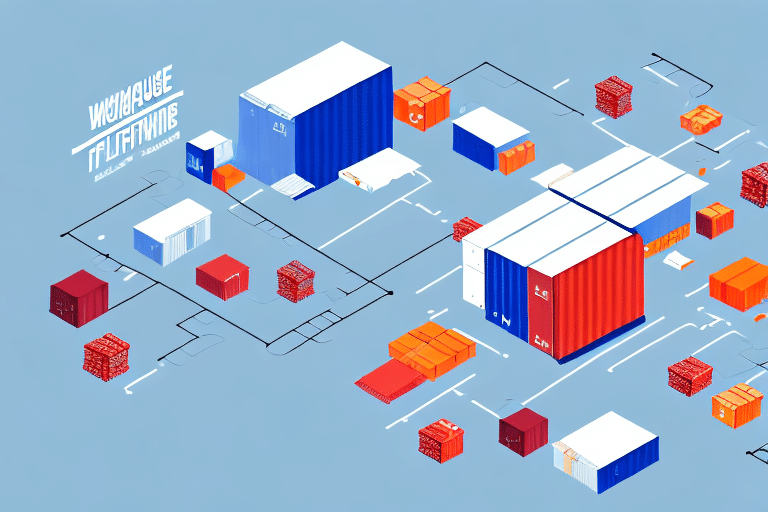Is Your Business Ready to Outsource Fulfillment? Key Indicators and Strategies
In today's competitive business landscape, optimizing operations is crucial for sustained growth and customer satisfaction. Fulfillment, which encompasses order processing, inventory management, packaging, and shipping, is a critical component that can significantly impact your bottom line. While managing fulfillment in-house offers control, outsourcing it to a third-party provider can provide efficiency and scalability. But how do you know if your business is ready to make this transition? Here are nine signs that indicate outsourcing fulfillment might be the right move for your company.
Signs Your Business is Ready to Outsource Fulfillment
1. Increasing Order Volume
If your business is experiencing a steady increase in orders that your current in-house system struggles to handle, it's a clear sign that outsourcing could help manage the growth efficiently. According to a Statista report, global e-commerce sales are projected to reach $6.54 trillion by 2023, highlighting the growing demand for efficient fulfillment processes.
2. Limited Storage Space
Running out of warehouse space can hinder your ability to scale. Outsourcing fulfillment allows you to leverage the storage capabilities of third-party providers, ensuring that your products are safely stored without the need for significant capital investment in additional space.
3. High Fulfillment Costs
Managing fulfillment in-house can be costly, especially when factoring in expenses related to warehouse rent, utilities, labor, and technology. Outsourcing can often reduce these costs by providing economies of scale and specialized expertise.
4. Desire to Focus on Core Business Activities
Outsourcing fulfillment frees up valuable time and resources, allowing you to concentrate on core activities such as product development, marketing, and customer service. This strategic focus can drive business growth and innovation.
5. Need for Advanced Technology
Third-party fulfillment providers often invest in advanced technologies like inventory management systems, order tracking, and automated packaging solutions. Leveraging these technologies can enhance your fulfillment efficiency without the need for significant upfront investments.
6. Seasonal Demand Fluctuations
If your business experiences seasonal spikes in orders, outsourcing can provide the flexibility to scale operations up or down as needed, ensuring you can meet customer demand without overextending your resources.
7. Geographic Expansion Plans
Expanding into new geographic markets can complicate fulfillment logistics. Outsourcing to providers with a national or international presence can streamline shipping processes and reduce delivery times to new markets.
8. High Error Rates in Fulfillment
Frequent errors in order processing and shipping can damage your reputation and lead to customer dissatisfaction. Outsourcing to experienced fulfillment partners can improve accuracy and reliability in your fulfillment operations.
9. Lack of Fulfillment Expertise
Effective fulfillment requires specialized knowledge in logistics, inventory management, and shipping regulations. If your team lacks this expertise, outsourcing can provide access to seasoned professionals who can optimize your fulfillment processes.
Advantages and Disadvantages of Outsourcing Fulfillment
Pros of Outsourcing Fulfillment
- Cost Savings: Reduce expenses related to warehousing, technology, and labor.
- Scalability: Easily scale operations to handle fluctuating order volumes.
- Expertise: Benefit from the specialized knowledge and technology of fulfillment experts.
- Focus on Core Competencies: Allocate more resources to areas that drive business growth.
- Improved Delivery Times: Leverage established logistics networks to enhance shipping efficiency.
Cons of Outsourcing Fulfillment
- Loss of Control: Limited oversight over the fulfillment process can lead to potential misalignments.
- Dependency: Relying on a third party can pose risks if the provider experiences issues.
- Integration Challenges: Aligning your systems with the provider's can be complex and time-consuming.
- Customer Service Impact: Ensuring consistent customer service standards requires effective communication.
Cost Analysis: In-House vs. Outsourced Fulfillment
Determining whether to manage fulfillment in-house or outsource it hinges on a thorough cost analysis. Consider the following factors:
In-House Fulfillment Costs
- Labor: Hiring and training staff to manage orders, packaging, and shipping.
- Infrastructure: Investing in warehouse space, shelving, and equipment.
- Technology: Implementing inventory management and order processing systems.
- Operational Expenses: Costs associated with utilities, maintenance, and supplies.
Outsourced Fulfillment Costs
- Service Fees: Charges based on order volume, storage space, and additional services.
- Shipping Rates: Access to discounted shipping rates through the provider's network.
- Integration Fees: Costs related to aligning your systems with the provider's technology.
Outsourcing can offer significant cost savings by eliminating the need for capital investments and reducing variable costs. However, it's essential to compare the total costs, including service fees and potential hidden expenses, to make an informed decision.
Choosing the Right Fulfillment Partner
Selecting the appropriate fulfillment partner is critical to the success of your outsourcing strategy. Here are key factors to consider:
Experience and Expertise
Choose a provider with a proven track record in your industry. Experienced partners understand the unique challenges and can offer tailored solutions that align with your business needs.
Technology and Integration
Ensure the provider uses advanced technology that can seamlessly integrate with your existing systems. This includes inventory management, order processing, and real-time tracking capabilities.
Scalability
Your fulfillment partner should be able to scale operations in line with your business growth. This flexibility is essential for handling seasonal spikes and expanding into new markets.
Customer Service
Evaluate the provider's commitment to customer service. Efficient communication channels and responsiveness are vital for resolving issues promptly and maintaining customer satisfaction.
Cost Structure
Understand the provider's pricing model, including any setup fees, storage costs, and per-order charges. Transparent pricing helps prevent unexpected expenses and facilitates accurate budgeting.
Reputation and References
Research the provider's reputation by reading reviews and requesting references. Positive testimonials and case studies can indicate reliability and quality of service.
Best Practices for Successful Fulfillment Outsourcing
Implementing best practices ensures a smooth transition and effective collaboration with your fulfillment partner:
Clear Communication
Establish open and consistent communication channels. Regular meetings and updates help align expectations and address any challenges proactively.
Define Roles and Responsibilities
Clearly outline the roles and responsibilities of both your team and the fulfillment provider. This clarity prevents overlaps and ensures accountability.
Set Performance Metrics
Establish key performance indicators (KPIs) such as order accuracy, shipping times, and customer satisfaction rates. Monitoring these metrics helps assess the provider's performance and identify areas for improvement.
Integrate Systems
Ensure seamless integration between your e-commerce platform and the provider's systems. This facilitates real-time inventory updates, order processing, and tracking information.
Regular Audits
Conduct periodic audits of fulfillment processes to ensure compliance with standards and identify any discrepancies. Regular assessments help maintain quality and efficiency.
Future Trends in E-Commerce and Fulfillment
The e-commerce landscape is continuously evolving, influencing fulfillment strategies. Staying abreast of emerging trends can help your business adapt and thrive:
Automation and Robotics
Automation technologies, including robotics and AI, are transforming fulfillment centers by increasing speed and accuracy. Investing in these technologies can enhance operational efficiency.
Sustainability
Consumers are increasingly prioritizing sustainability. Fulfillment providers are adopting eco-friendly practices such as using recyclable packaging and optimizing shipping routes to reduce carbon footprints.
Omnichannel Fulfillment
Businesses are integrating multiple sales channels, including online and brick-and-mortar stores. Omnichannel fulfillment strategies ensure seamless order processing and inventory management across all platforms.
Same-Day and Next-Day Delivery
With the rise of instant gratification, customers expect faster delivery times. Fulfillment partners are expanding their networks and optimizing logistics to offer same-day and next-day delivery options.
Personalization
Personalized fulfillment services, such as customized packaging and tailored shipping options, enhance the customer experience and foster brand loyalty.
Conclusion
Outsourcing fulfillment can be a game-changer for businesses aiming to scale efficiently while maintaining high customer satisfaction. By recognizing the signs that indicate readiness, understanding the advantages and challenges, conducting a thorough cost analysis, and choosing the right partner, your business can leverage outsourcing to drive growth and stay competitive in the dynamic e-commerce landscape. Additionally, adopting best practices and staying informed about future trends ensures sustained success and adaptability in an ever-evolving market.






















